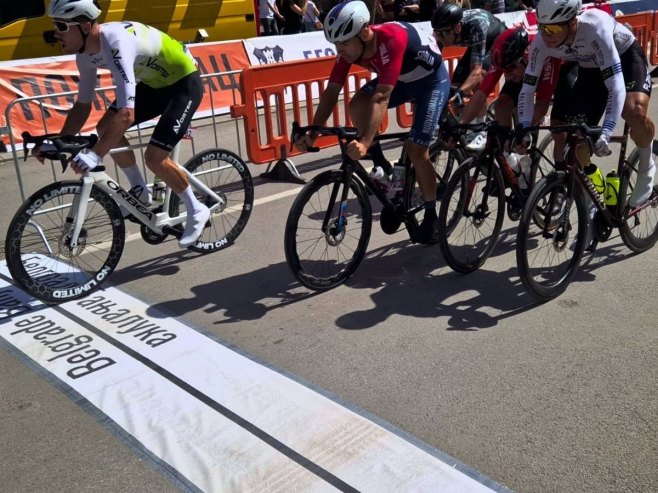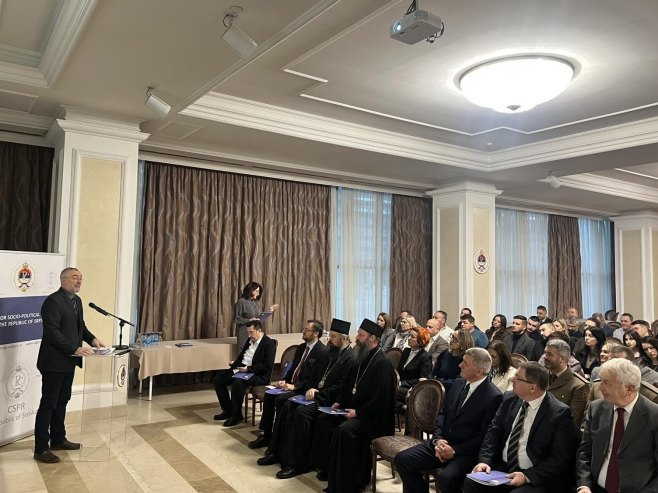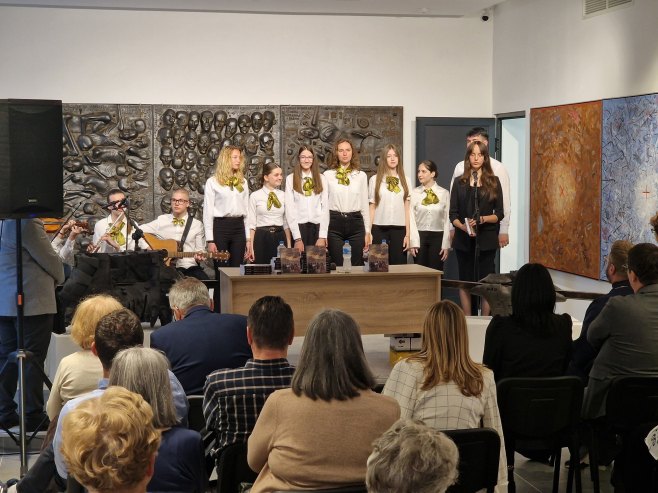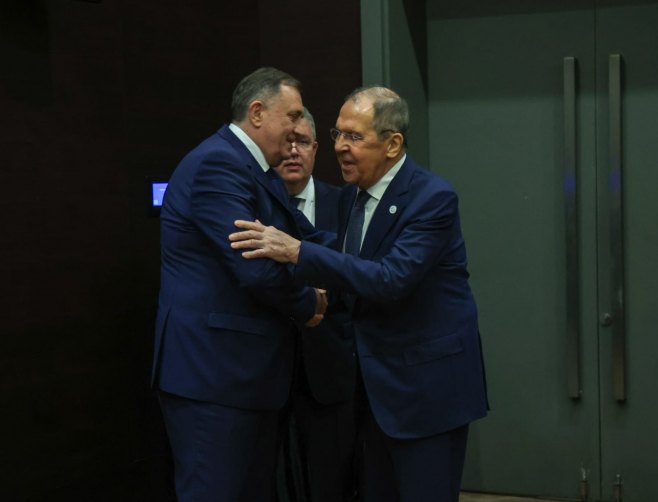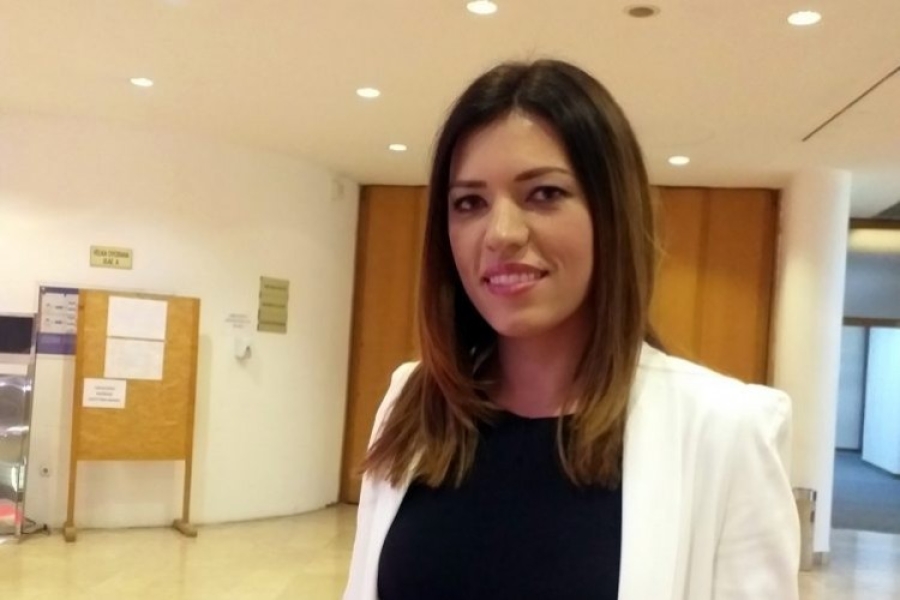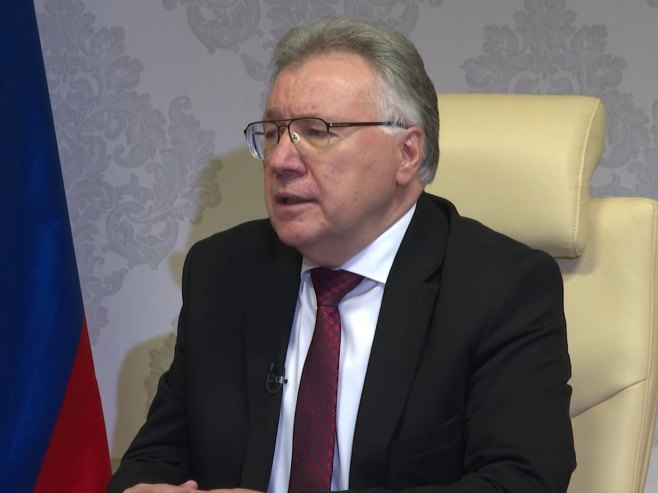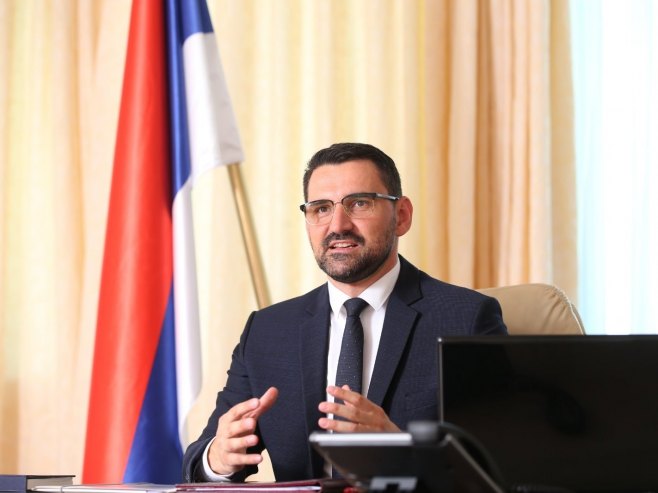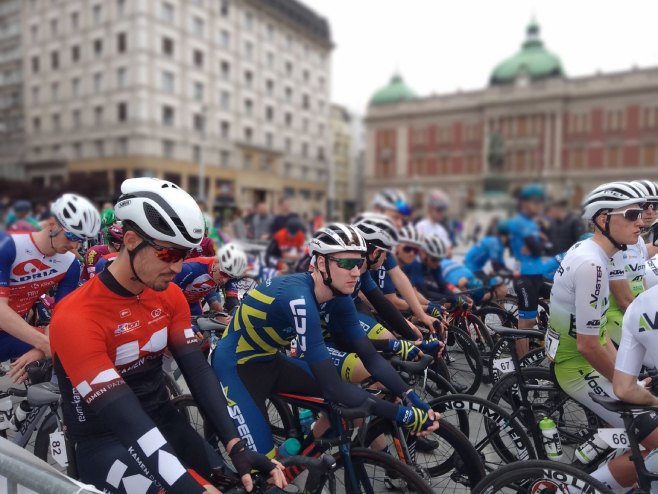The novel “The Children the World Didn’t Love” by Bojan Vegara was promoted this evening in East Ilidža. Through 57 stories told from the perspective of a twelve-year-old boy, the novel depicts wartime events in the town of Hadžići near Sarajevo.
Vegara told reporters that he wrote the novel to leave a lasting trace of that wartime period, so that people could understand the sacrifice made by Sarajevo Serbs in the creation of Republika Srpska.
“We defended ourselves during the war and survived, and then left in an exodus after the war. The first story begins on March 1, 1992, after the barricades and the killing of a Serb wedding guest in Sarajevo, and the last one is set in March 1996, when we arrive in Bratunac and begin rebuilding a destroyed house to settle there,” Vegara recalled.
He explained that the novel portrays life during the war—without electricity or water, under constant shelling, with sniper threats, and the suffering of civilians.
“Watching the propaganda and lies from the other side, including the lists of children who died, I decided to write this book to show that our civilians also suffered in that war, and that we too were under siege. It was a horrifying period,” said Vegara.
According to him, these experiences must be documented so that future generations understand what their parents went through, how Republika Srpska and Serb Sarajevo were born—out of sheer Serb defiance on bare ground—and ultimately, who they are dealing with.
Professor Saša Knežević of the Faculty of Philosophy at the University of East Sarajevo stated that this is an important novel that tells the story of war through the eyes of a child.
“It took a long time to write, but judging by the reactions and interest, it clearly came at the right moment and still has a wide audience. Starting in the fall, we will try to organize school visits for Bojan to meet with students. It’s important for children today to see someone who was their age during the war—only then will they truly understand what happened,” Knežević emphasized.
Professor and Orthodox priest Darko Đogo from the Faculty of Theology Saint Basil of Ostrog in Foča said that “The Children the World Didn’t Love” is an excellent book by a man with natural talent and something important to say.
“The book is autobiographical, without fiction, yet our lives are such that no fantasy can match what someone like Bojan, who was twelve at the time, experienced around Sarajevo. The book is highly authentic and unique. These are his personal, but also collective stories of war children. The title refers to all of us born in the 1980s who were displaced from Sarajevo,” Đogo explained.
He added that the world has never truly heard the Serb side of the story—neither about the war, nor about the wartime and postwar childhoods of Serb children.
Source: RTRS
